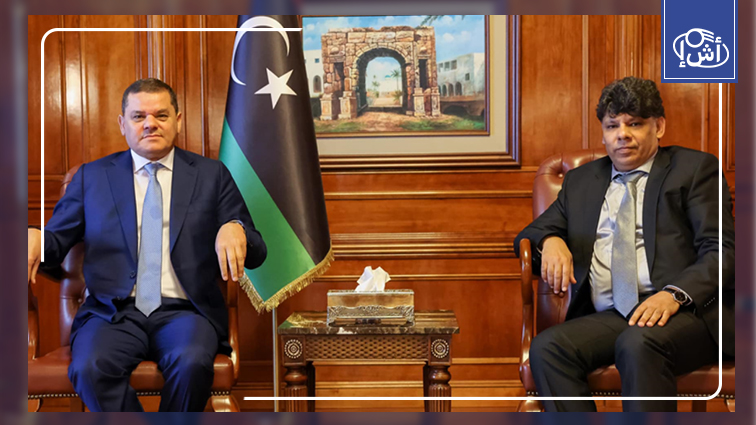Accusations of corruption and bribery by Libya’s judiciary have stirred public opinion, amid calls for an urgent and transparent investigation to preserve the country’s only undivided body.
Libyan journalist and media personality Khalil al-Hassi accused Attorney General Siddiq al-Sur of several offences, including canceling the “red notice” issued against Ali Dabaiba, cousin of the head of the Libyan Government of National Unity, Abdul Hamid Dabaiba, and canceling the “letters rogatory” requested by the former attorney general against Ali and his son Ibrahim in Britain.
These accusations caused great shock and resentment in political and social circles, and prompted the Public Prosecution to respond to them, with an emergency and extraordinary meeting of the board of directors of the Libyan Association of Members of Judicial Bodies, describing it as “an insult to the judicial institution.”
The Libyan Association of Members of Judicial Bodies called on the Public Prosecutor’s Office to “open an urgent investigation into these accusations and refute the accusations with conclusive evidence so that the integrity of the judiciary is confirmed and all those who offended him are held accountable.”
Ali Dabaiba was the former director of the Administrative Centers Development Authority, and he is one of the symbols of the regime of the late President Muammar
Al-Hassi did not stop in his accusations with the Dabaiba family, but talked about relations between the Attorney General and Abdul Ghani Al-Kikli, known as “Gheniwa”, one of the most influential militia leaders in Tripoli and head of the Stability Support Agency formed by the former Presidential Council, and accused the Attorney General’s Office of “involvement” in the case of Abdul Rahim Al-Fitouri, who was sentenced twice to life imprisonment, which he described as “Pablo Escobar of Africa.”
The prosecutor in the Attorney General’s Office, Counselor Ali Zubaida, denied the accusations against the Attorney General, and said that “the case of Ali Dabaiba, was investigated during the term of the former Attorney General, Counselor Abdul Qader Radwan, in March 2014, until June 30, 2014, by Counselor Hadi Rehab, and he decided to release him and delete his name from the (Interpol) system.”
In an attempt to calm the controversy, Libyan jurist Bashir Omar called for an impartial investigation into the case, expressing the importance of not passing these accusations without careful research and analysis of the facts.
As the controversy in Libya between supporters and opponents of the Attorney General widened, the head of the National Institution for Human Rights in Libya, Ahmed Abdel Hakim Hamza, said that the photos are “the only one who stood up to the Dabaiba family, and fought their corruption in many serious cases, the latest of which was the issue of developing the Hamada field.”
The Closure of Libya’s United Nation Mission building in New York due to financial crisis
